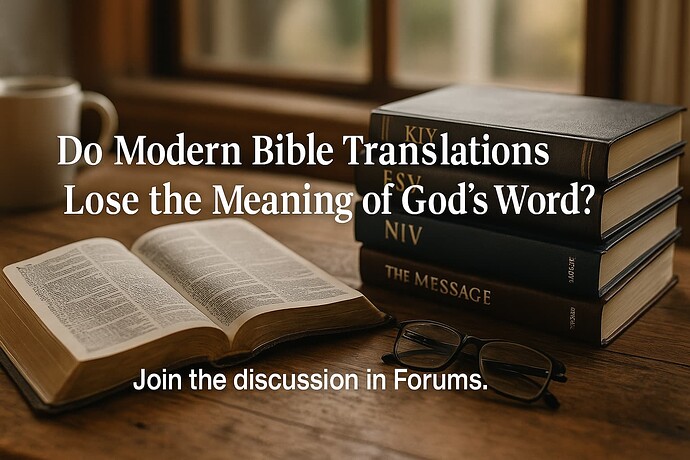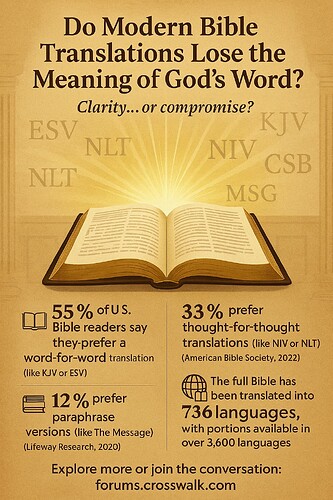Do Modern Bible Translations Lose the Meaning of God’s Word?
Newer translations promise clarity—but do they come at the cost of depth and truth?
#BibleTranslation #GodsWord #ScriptureDebate #christianforums #crosswalkforums #forums #crosswalk #faithcommunity #faithforums
Walk into a bookstore or scroll online, and you’ll find dozens of Bible versions—ESV, NIV, NLT, CSB, Message, and more. Each one claims to faithfully communicate God’s Word, but the differences can feel jarring. Some sound fresh and readable; others aim for word-for-word precision.
This raises a question that has divided pastors, scholars, and everyday believers: Do modern translations make Scripture more accessible—or do they water it down? Critics argue that paraphrases and dynamic-equivalent translations risk losing theological precision, flattening rich imagery, or even subtly shifting doctrine. On the other hand, defenders point out that God’s Word has always been translated—from Hebrew to Greek to Latin to English—and that the Spirit can work through language that ordinary people can actually understand.
For some, this isn’t just about accuracy but also about trust. If a translation feels too different from the one they grew up with, it can spark doubts about whether God’s Word is being tampered with. Others, however, see modern translations as a gift that removes barriers, opening the Bible to new generations who might never connect with archaic wording.
So where’s the line? Is clarity worth the risk of change—or does holding to older translations guard the meaning more faithfully?
Read more here:


